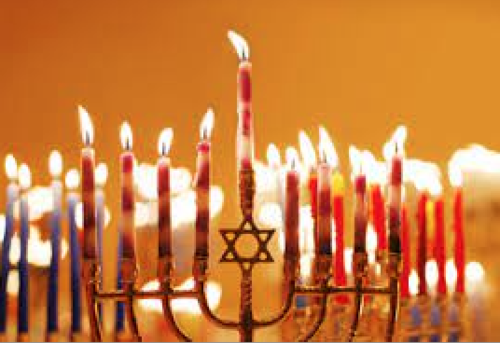Spirituality Vs. Stress: The Torah's Prescription: Parshat VaYigash, 5782
12/07/2021 11:46:18 AM

The Menorah candles have all burned down and gone out. Where has the light gone? Where has the blessing gone? But we know that the laws of time and space, like the laws of spirituality, tell us that energy/blessing can never be destroyed. So all of those holy lights? They shine on in other holy vessels. These vessels are called Torah, Mitzvot and Tefila... in the darkness of stressful times, they continue to light our way.
During these difficult months, stress is in the very air we breathe. We feel it, our children feel it, our world feels it.
Rest and relaxation, exercise, mindfulness -- all very good and helpful, usually... but not always.
"When someone tells me to relax," a friend told me, "for me, it triggers tension." And that's not uncommon. As long as the means for relieving stress act as distractions from dealing with the causes of our stress, then the relief they bring are temporary at best.
As the Mishna says, HaIkkar HaMa'aseh -- the main thing is the deed. One dram of meaningful action is worth a pound of rumination. That is why our sacred texts always try to figure out not the supernal teaching but the concrete Mitzvah, the action. If stress is a reaction to a reality, then action can help us change that reality and thus relieve the stress.
Most of the things that cause us stress are amenable to action. And that doing might start with us but it never ends with us. Action means helping someone else and rising up together. There is almost always something that we can do, even in.a small way. But not always. What then?
The other side of doing in Judaism is dialogue. Doing and speaking. The Midrash tells us that we should all of us have a friend whom we can share with, confide in, support and from whom we can ask support. O Chevruta O Mituta -- companionship or death, is how the Talmud piquantly puts it. Hassle shared is hassle halved. Dialogue isn't just about problems or the affairs of the day. The highest kind of dialogue in Judaism is study. Looking at a text, asking questions, getting outside of ourselves and our common experiences to the level of the universal. An hour of Torah study I believe can achieve tremendous healing and relief because it helps us see our lives in a wider context; a context of meaning beyond the momentary.
But there is a realm of existential inner life where anxiety camps out and lights a great bonfire. The Midrash tells us that Abraham the daddy of us all saw the world in flames wherever he looked. He cried out -- is there no king in this burning castle of the world?
And at that moment of crisis, Avraham experienced a Presence, an ultimate Voice and advocate for life. No, you are not alone. And this Presence invited Avraham and invites all of us to have a connection, a Partner, a loving Source that gets us on the molecular level -- the subatomic level. That knows us more, infinitely more, than we know ourselves. That Presence cannot be proven or quantified or qualified or even named. So we call it ALLBEING- י and ה and ו and ה. Adonai. HaShem. And we are invited to connect to that Presence when we rise, when we retire and in the midst of the day. We are asked to connect in the most sincere, vulnerable way and to ask for guidance, strength and inner resources. These moments are called, Tefila or prayer.
So... Mitzvot (actions/kindness), Torah (study/dialogue) and Tefila (connection/prayer). These are the spiritual vessels that contain the light, that have illuminated and sustained our people throughout this journey and that will, if we can persist and strengthen each other, guide us ever higher.
